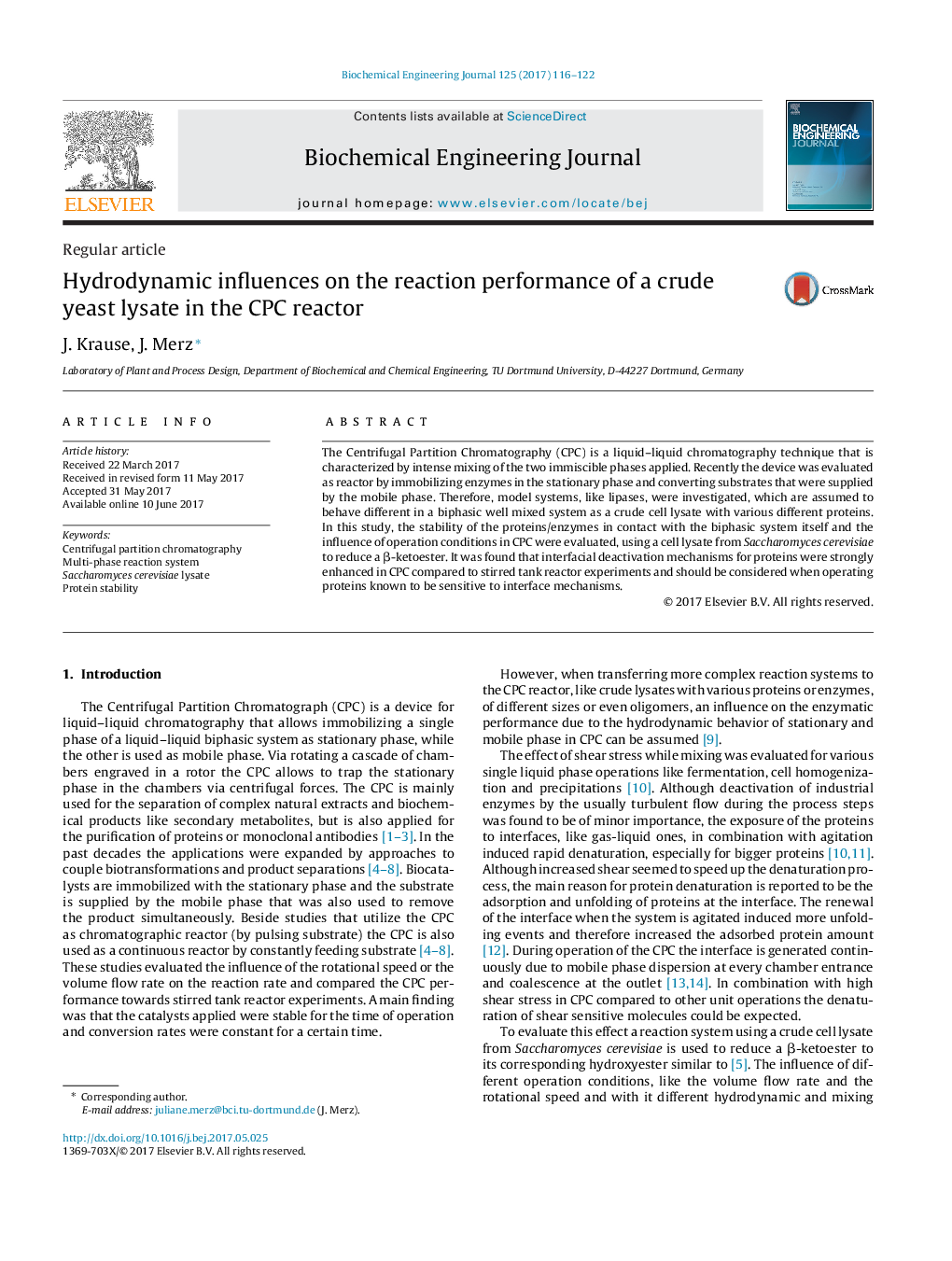| Article ID | Journal | Published Year | Pages | File Type |
|---|---|---|---|---|
| 4752130 | Biochemical Engineering Journal | 2017 | 7 Pages |
â¢Yeast cell lysate was used to catalyze an oxidoreduction in the CPC reactor.â¢Protein deactivation in CPC was observed depending on the operation conditions.â¢Comparison of CPC to a STR showed increased deactivation under treatment in the CPC.â¢The interface renewal was derived as a source of protein denaturation in CPC.
The Centrifugal Partition Chromatography (CPC) is a liquid-liquid chromatography technique that is characterized by intense mixing of the two immiscible phases applied. Recently the device was evaluated as reactor by immobilizing enzymes in the stationary phase and converting substrates that were supplied by the mobile phase. Therefore, model systems, like lipases, were investigated, which are assumed to behave different in a biphasic well mixed system as a crude cell lysate with various different proteins. In this study, the stability of the proteins/enzymes in contact with the biphasic system itself and the influence of operation conditions in CPC were evaluated, using a cell lysate from Saccharomyces cerevisiae to reduce a β-ketoester. It was found that interfacial deactivation mechanisms for proteins were strongly enhanced in CPC compared to stirred tank reactor experiments and should be considered when operating proteins known to be sensitive to interface mechanisms.
